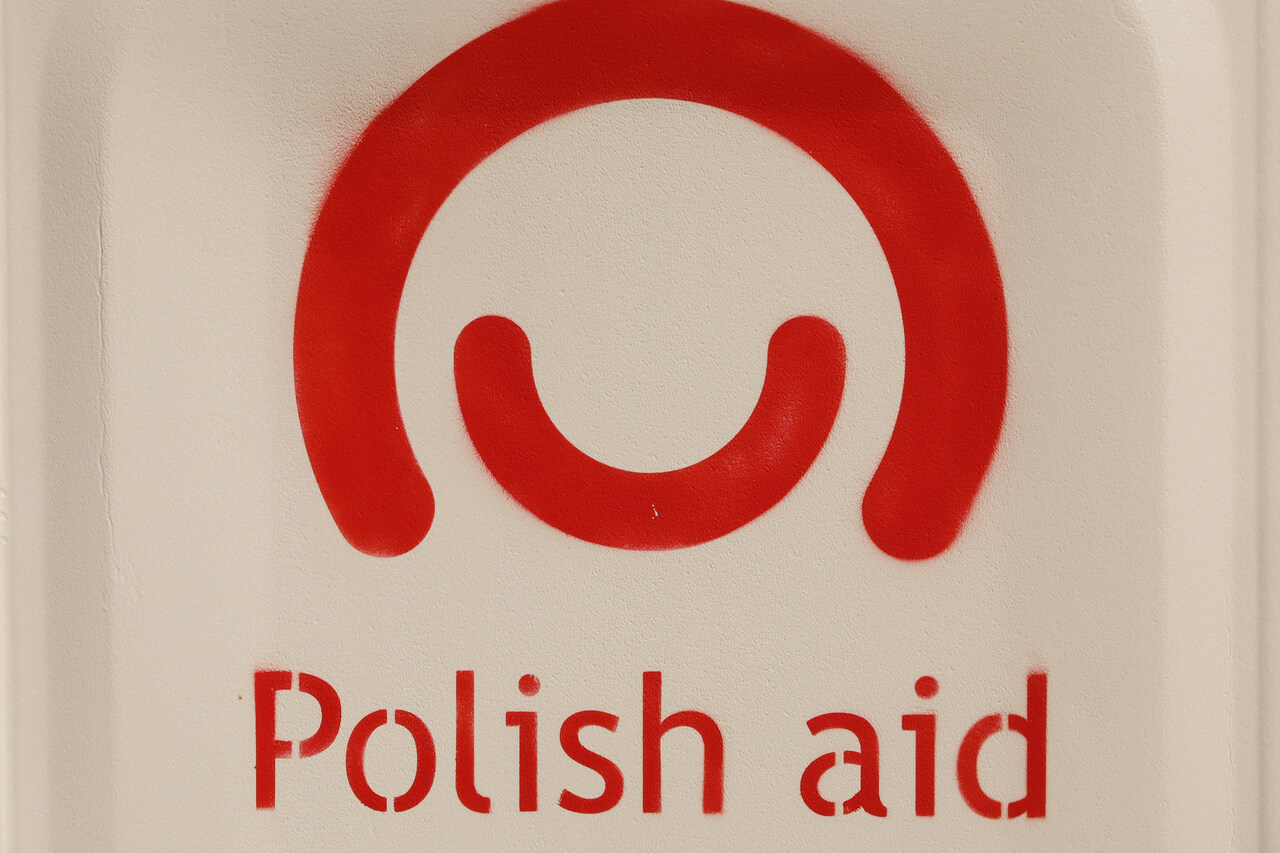Elections in Pakistan Bring A Fragile Stability
The 8 February parliamentary elections in Pakistan were unexpectedly won by candidates associated with former Prime Minister Imran Khan’s Pakistan Tehreek-e-Insaf (PTI). Despite this, the Pakistan Muslim League-Nawaz (PML-N) and the Pakistan People’s Party (PPP) have the best chance of forming a government. A coalition government means less stability, however, and greater difficulty in solving economic problems. It also strengthens the army’s position again. The formation of a new government opens the way to improving relations with neighbours and Western partners, including the U.S. and the EU.
 AKHTAR SOOMRO / Reuters / Forum
AKHTAR SOOMRO / Reuters / Forum
Election Results
In total, 128.5 million voters in Pakistan (out of 240 million inhabitants) were eligible to elect members of the National Assembly and representatives of four provincial parliaments. In the 336-seat parliament, 266 deputies are elected directly and the remaining 70 seats are reserved for women and minorities. They are awarded in proportion to the support received by the parties. According to the official results of the Election Commission, the majority of seats (101) were won by independent candidates, the vast majority of them affiliated with Imran Khan’s PTI party. The election favourite, PML-N, headed by the former three-time prime minister Nawaz Sharif, performed below expectations, winning 75 seats. The PPP, led by Bilawal Bhutto, son of two-time prime minister Benazir Bhutto, picked up 54. Therefore, neither party obtained a majority in parliament. The main parties shared the wins in the provinces—PML-N will probably govern alone in the largest region of Punjab, PPP in Sind, PTI in Khyber Pakhtunkhwa, and in Baluchistan, a coalition of several parties will be needed.
An Unexpected Triumph for Khan Supporters
The elections were perceived mainly through the prism of the confrontation between Khan, prime minister in 2018-2022, and the powerful army that had ruled the country for more than 30 years and retained great influence on politics, the judiciary, and media. Although Khan owed his victory in the 2018 elections to the support of the army, their relationship began to deteriorate in 2021, including due to disputes over the nomination of the head of the ISI military intelligence service. In April 2022, Khan lost his position in a no-confidence vote, and a broad coalition of the PML-N, PPP and smaller parties led by Prime Minister Shehbaz Sharif, Nawaz’s younger brother, took power. Thus, Khan had no influence on the selection of the new army chief in November 2022, Gen. Asim Munir, Khan’s staunch opponent. In July 2023, the parliamentary term ended and a technical government was to run the country during the elections.
Khan considered his removal from office to be a foreign conspiracy, behind which the army and the U.S. sought to punish him for his neutral attitude towards the Russian aggression against Ukraine and his visit to Moscow on the day of the full-scale invasion on 24 February 2022. Through mass marches and protests, he wanted to bring about early elections. He criticised the army more and more sharply and publicly, for which it wanted to remove him from politics. After the riots that broke out after Khan’s short-term arrest in May 2023, thousands of his supporters were imprisoned and many PTI members were forced to change parties or withdraw from politics. The authorities and the army put pressure on media not to publish his statements, and the elections were postponed to February this year to weaken the popularity of the former prime minister. Last August, Khan was imprisoned for three years for corruption. A week before the elections, he received three additional sentences, sentencing him to a total of 31 years. He was not allowed to run in the elections, and members of his PTI party had to run as independent candidates.
In this context, the good results in the elections for Khan’s supporters is an expression of his unwavering popularity and a vote of no confidence in the traditional parties and the military. His political position was enhanced by his removal from office when the economic situation began to deteriorate and the new government had to introduce unpopular reforms. Repression by the military and political elites led to the image of Khan as a martyr and the only one who can change the country’s ineffective political and economic system. However, despite the victory, PTI did not obtain enough seats to form a government. Moreover, as independent candidates, they do not take part in the division of the 70 seats reserved for parties. It is also not known whether Khan will be released from prison, as he may be convicted in further proceedings against him, of which there are more than 150 in total. His MPs may be subjected to pressure to change their party affiliation. Nevertheless, PTI has fielded its own candidate for prime minister, Omar Ayub Khan, and is contesting the results in many districts, hoping to gain a majority.
Challenges for the New Government
The election results enable the return to power of a broad coalition of the PML-N, PPP and smaller parties, which has been ruling the country since April 2022. The weaker-than-expected result for the PML-N reduced Nawaz Sharif’s chance to serve as prime minister for the fourth time. As a result, Shehbaz Sharif became an acceptable candidate for the head of the government for the second time. The new cabinet must be formed within three weeks after the elections. Yet, a weak mandate, a broad coalition composition, and PTI accusations of electoral fraud will hamper political stabilisation and weaken the civilian government vis-à-vis the military.
The main tasks of the new government include overcoming the economic crisis. According to the World Bank, Pakistan’s economy fell into recession in 2023 (-0.6% of GDP) after high growth in 2021 (5.8%) and 2022 (6.1%). Declining foreign exchange reserves, currency depreciation (by 20% against the U.S. dollar in 2023), and rising debt-servicing costs weakened economic activity. Catastrophic floods in 2022 and the increase in prices of energy raw materials and fertilisers hit agriculture, which employs 44% of workers. High inflation (29.6% in December last year), wage cuts, and rising unemployment have impoverished millions of citizens. Pakistan was saved from bankruptcy by the IMF aid programme granted in July 2023, worth $3 billion. However, related reforms include a forced reduction in subsidies, leading to an increase in energy and food prices.
Another challenge is the deteriorating security situation and tense relations with neighbours. After the Taliban took power in Afghanistan in 2021, the number of terrorist attacks in Pakistan increased (by 70% year on year in 2023) and victims (by 80%). Pakistan accused the Taliban of sheltering Pakistani extremists. This was the official reason for the decision from October last year to deport 1.7 million Afghans illegally staying on Pakistani territory. Although the decision enjoyed public support, it worsened relations with Afghanistan. The security situation is complicated by protests and separatist activities in Baluchistan, as well as an increase in political assassinations and attacks on political party headquarters before the elections.
Additionally, in January this year, relations with Iran deteriorated after Iranian shelling killed several Pakistani soldiers and civilians. This provoked the Pakistani authorities into retaliatory attacks. Although relations were quickly stabilised, the situation on the border remains tense. Relations with its western neighbour, India, have been hostile for a long time, and the weak civilian authorities in Pakistan have not dared to make conciliatory gestures in recent years. The only neighbour with which Pakistan has good relations is China, which is expanding its influence in the country, for example through infrastructure investments.
Conclusions
The surprising election result for Khan’s party indicates the attachment of Pakistanis to the democratic process and the desire for a profound change in the system of government. Despite pressure from the army, Khan was not marginalised and his party will remain strongly in opposition. Although the election results are not fully satisfactory for anyone, all forces can claim some success—Khan confirmed his huge popularity, PML-N and PPP can return to power, and the army has retained its privileged position in the country. However, returning to the pre-election status quo means old problems remain, and this will hamper internal stabilisation. Tensions between the government and the opposition (PTI) and Khan and the army indicate a high risk of the return of open confrontation in the future. A coalition government will also be less effective in implementing economic reforms due to the diverse interests of the parties that constitute it.
Pakistan’s relations with key foreign partners can be expected to improve. The new government, focused on improving the economic situation, may be more open to normalising cooperation with India and rebuilding relations with Iran and the Taliban in Afghanistan. Extending financial support from the IMF will also require good relations with partners in the West. This opens up the possibility of repairing relations with the U.S., which were damaged by the last years of PTI’s rule, accusations of an American-led conspiracy against Khan, and his close relations with Russia. Although the U.S., the EU, and the UK expressed concern about the way the elections were conducted and called for an explanation of the irregularities, they will probably recognise the results and will be ready to cooperate closely with the new government. The European Union can become more involved in supporting economic and political reforms in Pakistan, including through negotiations on the extension of the GSP+ trade preferences.




.jpg)
